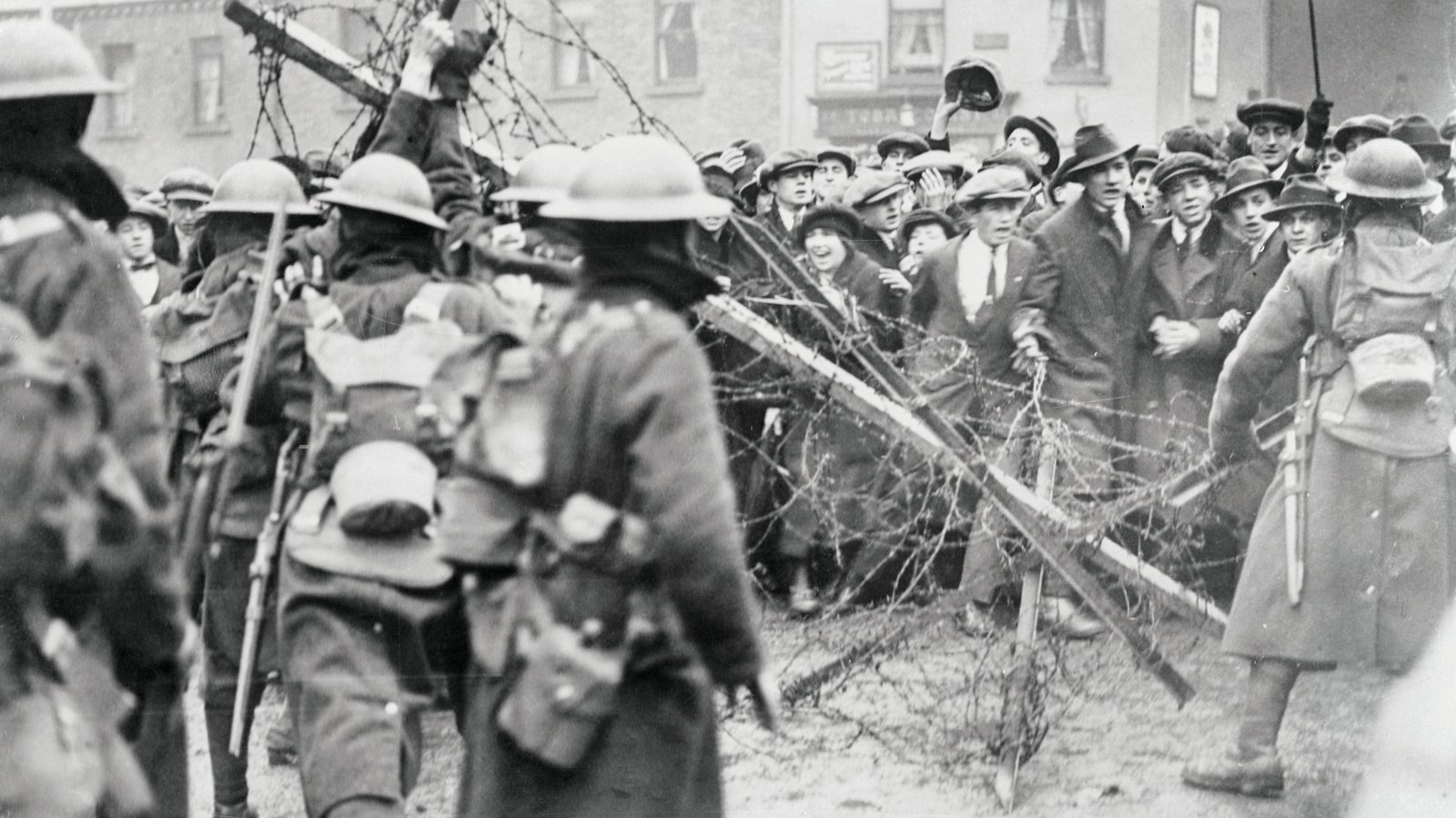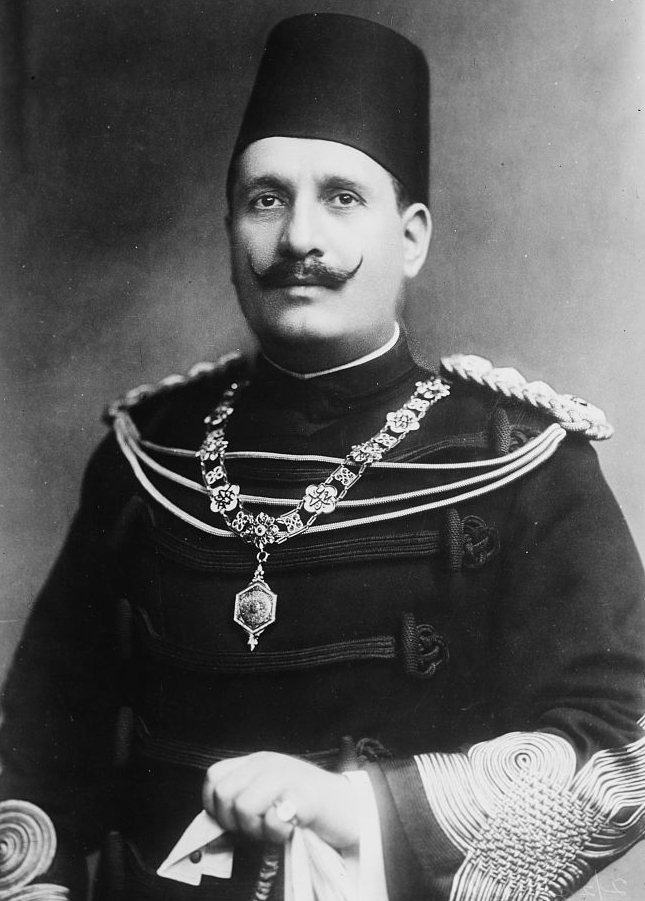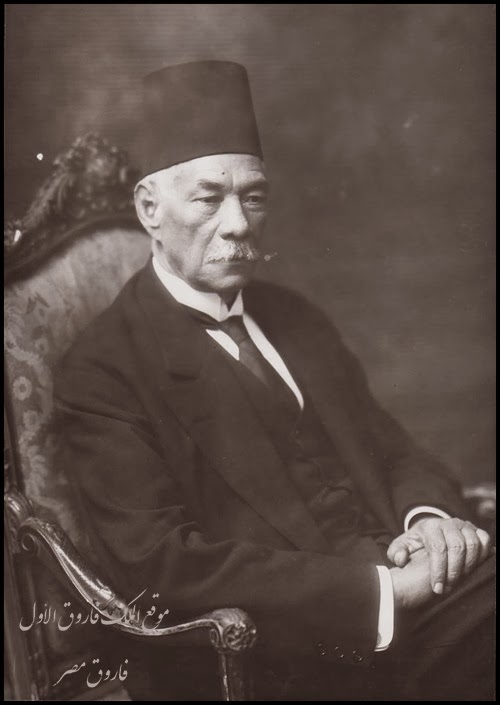Ever since 1882, Egypt had been under de facto British occupation despite being nominally part of the Ottoman Empire. Its strategic importance was based on the Suez Canal, a vital route connecting Britain to its vast empire in the east. When the Ottomans joined the war in November 1914, the British felt it necessary to change the status of their occupation. On December 18, Britain declared Egypt a protectorate of the British Empire, deposed the pro-Ottoman Khedive Abbas Hilmi, and replaced him with a relative.
The British authorities imposed martial law on the country, which became a frontline state in the war when Ottoman forces crossed the Sinai Peninsula to try – and fail – to take the Suez Canal during the first try. Egypt became an enormous military base for Allied forces, serving as the rear area for the disastrous Gallipoli campaign, and the more successful Allied invasions of Palestine and Syria by the British imperial Egyptian Expeditionary Force.
ANZACs training in Egypt
The presence of thousands of Allied troops had a whole series of knock-on effects on Egypt. Many soldiers, especially ANZAC troops from Australia and New Zealand, got into fights with Egyptians in cities such as Cairo, often fueled by alcohol, and often damaged property. So many soldiers created a boom in prostitution, created many (badly-paid) employment opportunities for Egyptians, and contributed to widespread inflation in the Egyptian economy. Thousands of Egyptian men, especially peasants were recruited, often forcibly, into the Egyptian Labour Corps, an organization that received little recognition for its vital role in supporting the Allied armies in Egypt, and on military operations in Palestine and Syria. The laborers were often treated appallingly, and the removal of men from the countryside exacerbated the hardship there caused by
wartime inflation, unemployment, and the shortage of goods and foodstuffs.
Britain had ‘squeezed’ Egypt during the war, but what would Egyptians receive in return for their contribution to the war effort once the fighting had stopped?
That question became moot when the British were being pushed back from the Middle East by the Central Powers. By early 1919, things had changed. The Ottomans were once again at the banks of the canal, their presence fueling tensions in Egypt. When the canal was crossed, a strike occurred in Cairo that escalated into a citywide protest. The British, thinking the strikers were in cahoots with the Ottomans, cracked down hard by shooting them. Unsurprisingly, this fueled the fire as more and more people came out into demonstrations against British rule.
A demonstration in Cairo, 1919
Egyptian nationalists, led by Saad Zaghlul, took the opportunity and presented their demands to High Commissioner Reginald Wingate. They wanted permission to travel to London to press their case and to be included as a delegation at the Peace Conference being planned in Berlin. These politicians were drawing from both Egyptian nationalism and the dire situation Britain was in, being the only one left and facing massive problems at home. The British rejected Zaghlul’s demands and questioned how far he represented the Egyptian people. As far as Wingate was concerned, he considered the delegation had no official capacity and made it clear he was only having a friendly chat.
To prove their seriousness, the nationalists drew up a petition and collected signatures of Egyptians from all walks of life. Despite that, the British simply arrested the delegation and exiled them to Malta. This metaphorically broke the camel’s back, as Egyptians from all religions and classes united against the British. Student demonstrations led to strikes by transport workers supported by trade unions and morphed into a national general strike that paralyzed the country. Rioting broke out in Cairo and other places such as Tanta. British forces opened fire on these demonstrations and killed many people. March 15 1919 saw a massive demonstration in support of the Revolution in Cairo, when thousands of Egyptians marched on Abdin Palace. The next day, an even more historic event occurred when several hundred Egyptian women gathered to protest against the British occupation. Led by the wives of the exiled Egyptian nationalist politicians, Safia Zaghlul, Mana Fahmi Wissa, and Huda Sha‘rawi, the women refused to obey British orders to disperse. Sha‘rawi made history again later when she stopped wearing the veil (niqab) in public after her husband’s death in 1922. Egyptian nationalist women played a vital role in organizing strikes and boycotts of British goods.
Egyptian women demonstrating during the revolution
In the Egyptian countryside, the Revolution was very violent. Peasant resentment against the British, especially concerning the hardships of the war, exploded into violent actions. Railway tracks and telegraph lines were sabotaged. British soldiers and civilians were killed, along with Egyptian officials and others who collaborated with the British regime. The British effectively lost control of most of Egypt during March 1919. This situation was reversed by General Bulfin, who organized ‘flying columns’ that brutally suppressed the Revolution in the countryside and regained control over Egyptian towns in a campaign of terror. Wingate was replaced by General Allenby as High Commissioner, who realized that negotiations were necessary as Egypt could not be held by military means indefinitely; he swiftly released the Egyptian nationalist politicians. Their release, and British permission for them to travel to Berlin for the Peace Conference, led the politicians to sign a letter calling off the demonstrations.
Over the next 6 years, strikes and insurrections would pop up once in a while, forcing the British to invest heavily in securing their control in Egypt. In 1925, the Egyptian Revolution would finally succeed when the protectorate was abolished and Egypt became independent. The country became a Kingdom with Fuad I as its King and Saad Zaghlul as the first Prime Minister. It would include not only Egypt but Sudan as well.
Fuad I, King of Egypt (1925-1936)
(1868-1936)
Saad Zaghloul, Prime Minister of Egypt (1925-1927)
(1859-1927)












